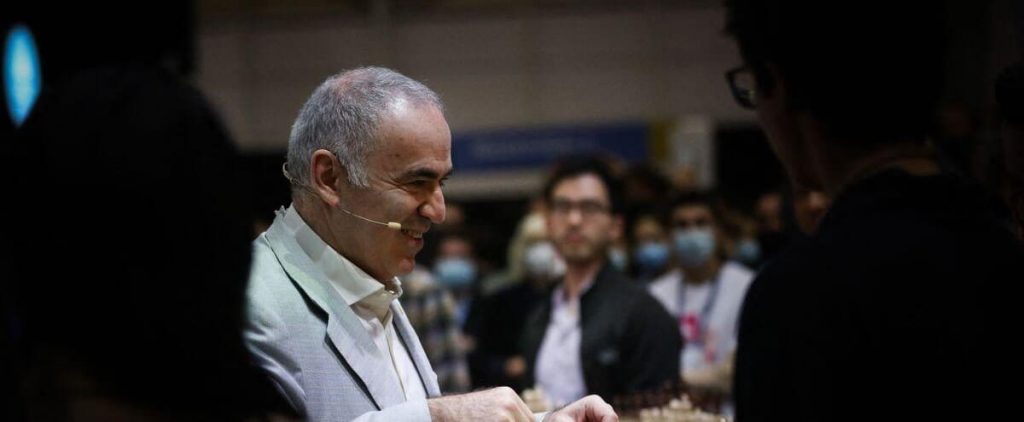Lisbon, Portugal | The man who ended up crouching at the computer of Deep Blue, the beginnings of artificial intelligence, worries that digital giants are drifting into individual liberties: “We need to be responsible,” chess legend Garry Kasparov told AFP at the Web Summit. .
The former great Russian master, retired since 2005, compiled a book published by Avast, the cybersecurity company of which he is an ambassador, of more than five years of historical records devoted to the precarious balance between ruthless technological innovation and respect for individual freedoms in the digital age.
The increasing access of artificial intelligence to our daily lives, the risk of disinformation, human-machine relationships, threats to personal data… Garry Kasparov calls for a “serious public debate in the free world” that is supposed to lead to “recommendations with different governments” to overcome these challenges new.
In an interview with AFP, on the sidelines of the Web Summit, he emphasized the large European crowd of digital events organized in Lisbon, “because it is governments that legislate to compel companies to do what is necessary to minimize harm.”
“The problem is that the public still does not have a clear idea of the direction we are taking, because governments view big technologies as a source of income,” he adds, lamenting the growing weight of “fake news.”
A call for “transparency”
While Facebook has been accused of putting its profits before the well-being of its users or fighting misinformation since the recent disclosure of a whistleblower, Garry Kasparov is calling on tech giants to “recalculate.”
“The problem with Facebook or Twitter is that we have absolutely no transparency about how the business is run,” he laments.
“For me, the key is moderation. If we force them to be transparent, we will understand how they work and we can address many violations,” adds the 58-year-old human rights activist, who now lives in the United States.
Despite initiatives such as those taken by the European Union, with its Data Protection Regulation (RGPD) or the “Digital Services Act” and “Digital Markets Act” projects, are attempts to regulate the digital juggernaut still safe?
“You can get the GDPR in Europe or the US,” Kasparov replies. But Chinese companies do not care. The Russian government does not care. The world is divided, you have the free world and the unfree world. “
“Unfortunately, the non-free world is bigger… and makes up 60% (of the planet) if you consider India a democracy. If we start questioning India, the numbers could be even worse.
Nothing to fear from artificial intelligence?
Considered the best chess player in history, Kasparov was also famous for his matches against Deep Blue, the IBM supercomputer that marked the first steps in artificial intelligence (AI) in the late 1980s.
After defeating Deep Blue in 1996, the Russian champion ended up losing in a rematch the following year. The first victory of a machine over human intelligence in a game.
Since then, advances in artificial intelligence have been such that the technology, with its nearly limitless application potential, has given rise to economic and societal promises and concerns.
It will be painful, no doubt about it. I don’t mean to sound insensitive, but people will lose their jobs. We must look at the situation as a whole: humanity always wins with the contribution of new technologies,” he said, giving an example of the rapid development of vaccines against the COVID-19 pandemic.
Garry Kasparov insists that “new artificial intelligence, as it becomes more complex, can be used to help make human-machine collaboration more efficient.” “In theory, these machines should make us smarter.”
See also…

“Total coffee aficionado. Travel buff. Music ninja. Bacon nerd. Beeraholic.”







More Stories
Fluoroscopy | “Self-coup”?
This is why you find it difficult to wake up in the morning.
She meets her boss at the airport after taking sick leave.